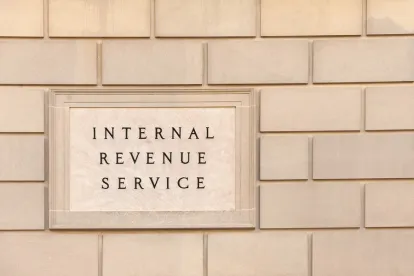The novel coronavirus (COVID-19) continues to cause widespread challenges for employers and their employees. Accordingly, employers have implemented a number of policies and programs to assist employees and others impacted by COVID-19. For example, under an employer leave-based donation program, employees elect to donate the value of their vacation, sick, or personal leave to be paid by their employers to a charitable organization described under Section 170(c) of the Internal Revenue Code. On June 11, 2020, the Internal Revenue Service (IRS) released Notice 2020-46 to address the taxability of employer leave-based donation programs that aid victims of the COVID-19 pandemic.
Background
Unless specifically excluded by the IRS, the value of the unused leave surrendered under this type of arrangement is considered wages, and, thus, subject to employment tax withholding requirements. Historically, the IRS has provided tax-favorable relief (similar to Notice 2020-46) during major hurricanes and other federally declared disasters where employees were permitted to donate the value of their vacation, sick, or personal leave on a nontaxable basis.
IRS Notice 2020-46
Specifically, Notice 2020-46 provides that cash payments made by an employer in exchange for vacation, sick, or personal leave that its employees elect to forgo will not be treated as wages for employment tax purposes if such payments are made to charitable organizations described under Code Section 170(c) for the relief of victims of the COVID-19 pandemic in the affected geographic areas before January 1, 2021. Accordingly, the value of the leave amount donated by an employee should not be included in the employee’s Box 1 (wages subject to income tax), Box 3 (wages subject to Social Security), and Box 5 (wages subject to Medicare) of the Form W-2. Presently, each of the 50 states, the District of Columbia, and 5 U.S. territories are considered affected geographic areas.
Notice 2020-46 further provides that electing employees may not claim charitable contribution deductions under Code Section 170 with respect to the value of the forgone leave. However, an employer making these cash payments may claim charitable contribution deductions (up to the applicable threshold) or business expenses deductions.
Employer Considerations
-
Employers may want to establish a leave donation program to aid victims of the COVID-19 pandemic. The IRS does not impose any prior written plan requirements. Thus, an employer has administrative flexibility in designing the program, and the employer may make direct cash payments to a charitable organization described under Code Section 170.
-
Since amounts of donated leave are not considered “wages” for employment tax purposes, employers implementing such a program avoid payment of the employer portion of Social Security and Medicare taxes on the donated leave amounts.
-
Employers with leave donation programs to aid COVID-19 victims may want to consider tax advantageous ways to claim deductions under Code Sections 170 or 162.
-
Employers may also consider matching employees’ contributions either partially or fully.
-
The favorable tax relief mentioned in Notice 2020-46 is strictly applicable to contributions made to charitable organizations described under Code Section 170(c), and, therefore, an employer may not use this arrangement to make direct payments to its COVID-19 affected employees. However, an employer may help its affected employees under a separate tax-favorable arrangement. Our May 2020 article deals with various altruistic options employers can take to aid employees during a disaster.





 />i
/>i
